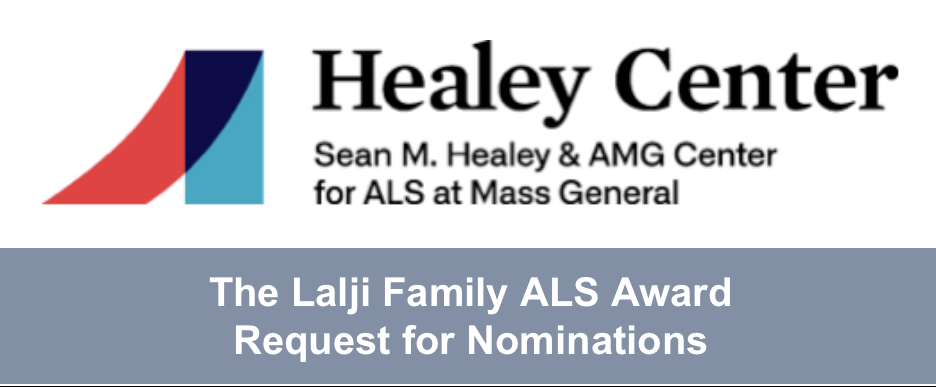
The Lalji Family ALS Award is a global prize celebrating excellence in research for an individual or team of investigators who are making transformative breakthroughs in the science of repair of neurological function in ALS. The goal is to identify and recognize therapies and modalities to regain lost function in ALS patients.
Prize Criteria
The Lalji Family ALS Award is accepting nominations for individual or team of investigators who have made significant progress in the ALS field impacting the repair of neuronal degeneration in ALS. Examples include but are not limited to:
- Identification of key modulators of axonal health and degeneration
- Discoveries to explore changes in axonal transport
- Novel methods to increase and improve endogenous neurogenesis
- Cell therapies to target and improve neuronal and/or glial regeneration
- Restoring nerve muscle communication
- Immune system inhibition to decrease inflammation and improve neuronal regeneration
- Discovery of intra-cellular mechanisms to enhance repair and regeneration
Timeline for Submission
 Release Date: July 19, 2021
Release Date: July 19, 2021- Nomination Due Date: September 10, 2021
- Notification to successful candidate: Fall 2021
- Presentation of award: Virtual 32nd International Symposium on ALS/MND December 2021
Download Nomination Form here. Submit completed nomination form and supporting documents as a single PDF to healeycenterforals@mgh.harvard.edu
Award: $40,000 USD
To learn more about the Sean M. Healey and AMG Center for ALS click here
Related news

Lighthouse II study finished recruitment phase with more than 400 participants
The Lighthouse II study finished recruiting. With currently 419 participants in the […]

Your expert opinion wanted on ALS clinical trials
TRICALS aims to improve clinical research to finding a cure for ALS. […]

European Commission approves Tofersen as treatment for ALS-SOD1
The European Commission has approved the drug QALSODY, better known as Tofersen. […]

Amylyx terminates open-label extension of the PHOENIX study
The pharmaceutical company Amylyx has announced that they will terminate the open-label […]